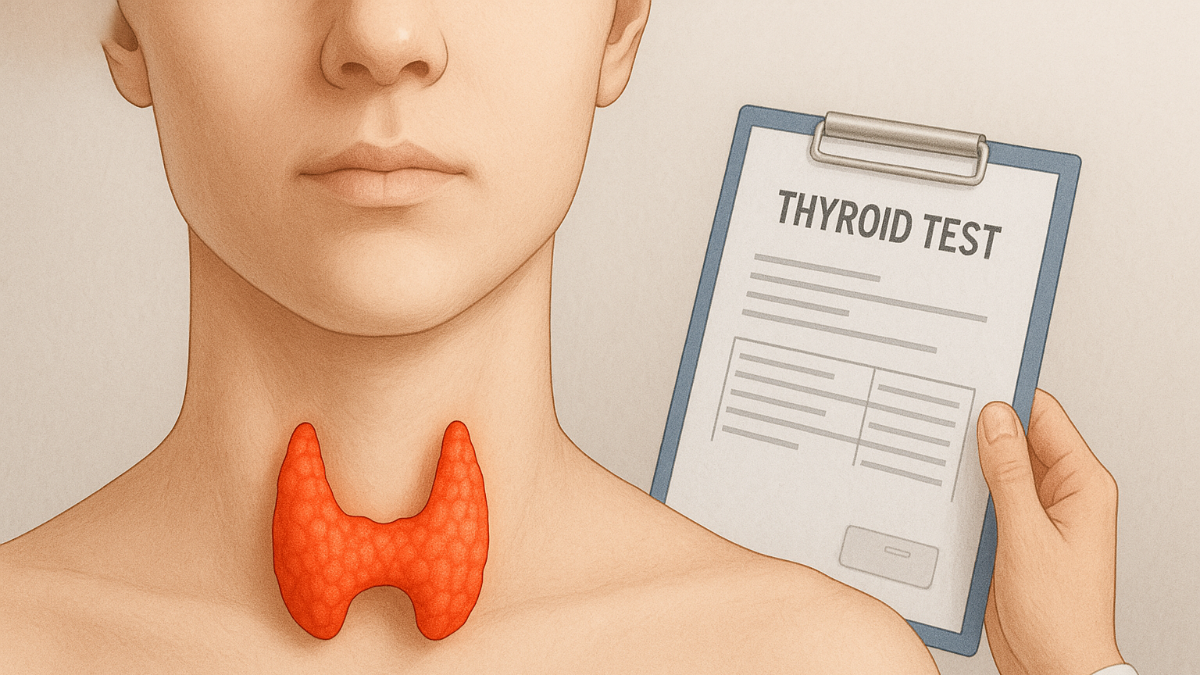Balancing Thyroid Health: Solutions and Insights
Updated: April 1, 2025

Thyroid problems reach millions across the globe, shaping daily lives and sparking growth in health solutions. People want to feel steady, and that need fuels a constant demand for tests, treatments, and tools. Learning how to manage the thyroid helps those aiming for better days and businesses keeping up with what works.
Why Thyroid Matters?
Thyroid hormones steer how the body uses energy, grows, and keeps nerves sharp. They lift oxygen use in most tissues, sparing the brain, testes, and spleen while helping break down carbs and pull in glucose. These jobs keep vital systems humming. When levels go off track, people feel it, and suppliers see a call for hormone pills or diet helpers rise.
The Thyroid's Control System
A system named the hypothalamic-pituitary-thyroid axis runs thyroid hormone levels. The hypothalamus puts out thyrotropin-releasing hormone (TRH), nudging the pituitary gland to release thyroid-stimulating hormone (TSH). TSH then tells the thyroid to make T3 and T4 hormones. It balances itself; when T3 and T4 climb, TRH and TSH ease off to hold steady. A hiccup here means trouble, driving more need for checkups and fixes.
Diagnosing Thyroid Issues
Thyroid function tests (TFTs) are the main way to spot problems. Testing TSH levels gives a solid starting point for thyroid health. A normal TSH often means the gland's fine, but if it's high or low, checking free T3 and T4 sorts out hypothyroidism or hyperthyroidism. Subclinical thyroid disease shows odd TSH with normal T3 and T4, no big signs yet, but it needs close watching to stay on top. New tools and more awareness keep these tests flowing, a quiet lift for suppliers of blood kits and lab gear.
Understanding Hypothyroidism
Hypothyroidism strikes when the thyroid can't pump out enough hormones. It creeps up more with age, especially for women. Hashimoto's thyroiditis, an immune attack on the gland, often leads the way. Low iodine or radiation from cancer care can trigger it too. Secondary hypothyroidism, rarer, ties to pituitary or hypothalamus snags, showing low TSH and thyroxine together, needing deeper tests to catch. This keeps hormone pills and immune aids in steady trade.
Treatment
Levothyroxine sodium, or T4, stands out for hypothyroidism treatment. It's steady, budget-friendly, and acts like the body's own thyroxine, shifting to active T3 as needed. Doctors say take it on an empty stomach, 30 minutes before breakfast, for the best take-up. If levothyroxine alone doesn't cut it, adding T3 helps some, with slow-release types keeping levels smooth all day. Future ideas, like growing thyroid bits from stem cells, could one day mend the gland itself. Drugs like cholestyramine or aluminum hydroxide can block it, while phenytoin speeds its exit, so timing counts. Suppliers find a strong market in these treatments as more folks need them.
Monitoring Progress
Regular checks keep thyroid treatment on course. At the start, doctors test TSH and free T4 every 6 to 8 weeks until levels even out. Once they hit a good spot, called euthyroid, a yearly test usually works. Age can change how hormones stick in the blood, so doses might shift over time. This personal care keeps testing tools and follow-ups rolling, a solid chance for suppliers to step in.
Beyond Medication: Lifestyle Interventions
Daily habits play a big role alongside thyroid meds. Iodine from food keeps the gland in shape, but too much throw it off, so balance matters. Selenium, found in nuts or fish, helps hormones do their job and eases gland strain. Moving around, like walking or stretching, boosts hormone health and energy flow. Stress stirs cortisol, which can nudge the thyroid out of line, so calming moves like yoga or deep breathing help. Weight and hypothyroidism often link up, making diet aids and activity a growing part of the mix for health and trade.
Advances in Thyroid Care
Thyroid care keeps growing with new steps forward. Personal plans using someone's genes aim for sharper results. Fast tools, like automated testers and quick-check devices, find issues clearly and sooner. Stem cell fixes might one day heal glands hit by immune trouble like Hashimoto's. Gentler ways, like radiofrequency ablation, skip big cuts for nodules or early cancers. Online doctor chats bring care closer, tying folks to tests and tips through screens. These changes lift how people fare and open paths for meds, lab gear, and tech suppliers to meet the call.
Conclusion
Managing thyroid problems weaves together solid tests, treatments that work, daily choices, and fresh tools. Hormones, food, and movement all tie in to keep people strong. For small B2B suppliers, this offers a clear way to bring tests, hormone pills, or health aids that genuinely help, built on trusted steps for this gland's vital work.